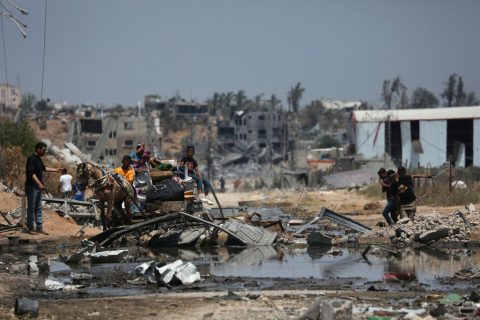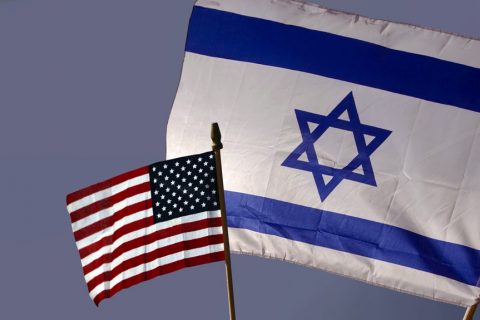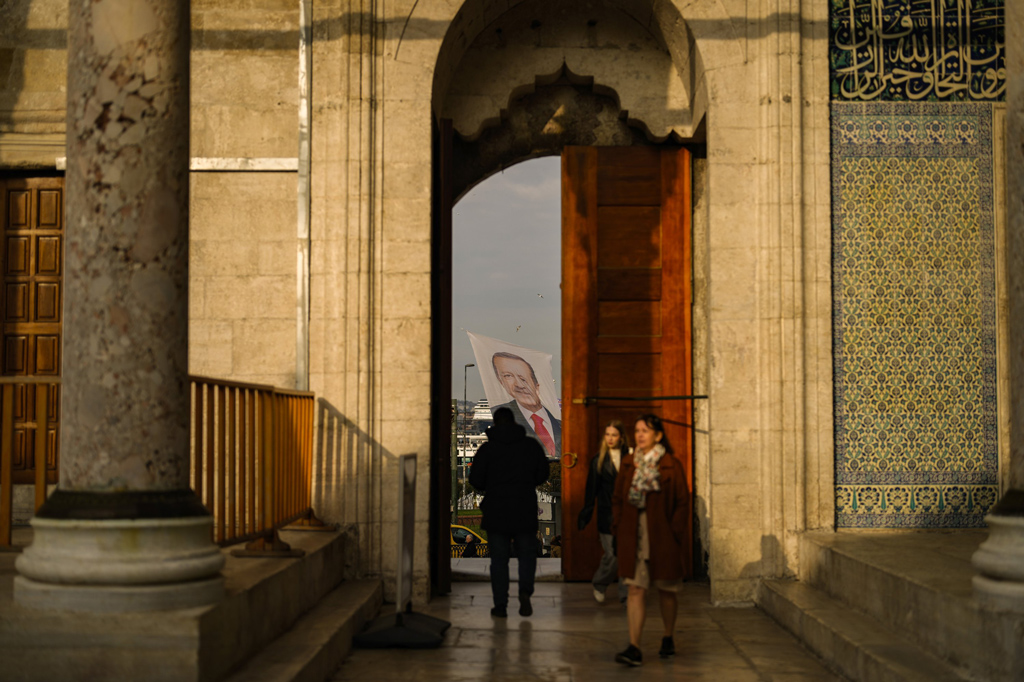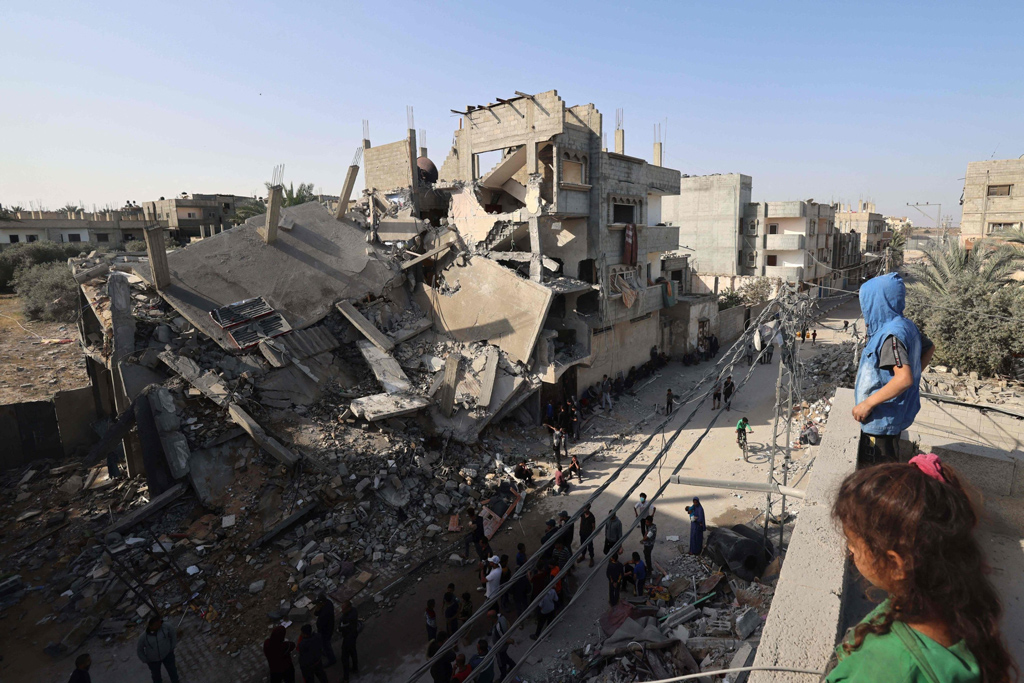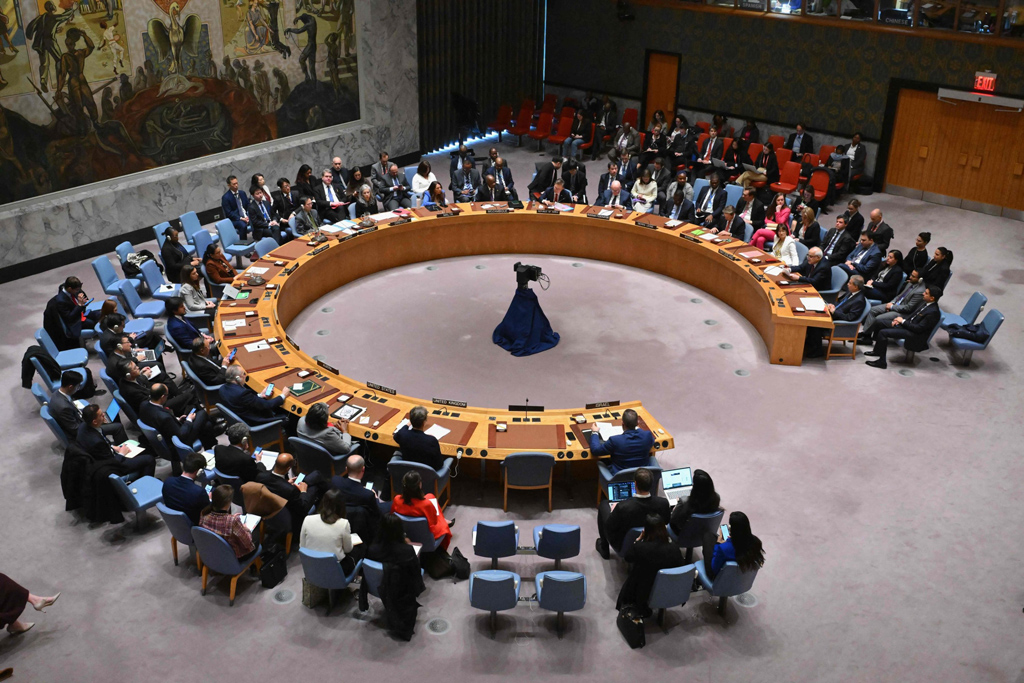Palestine
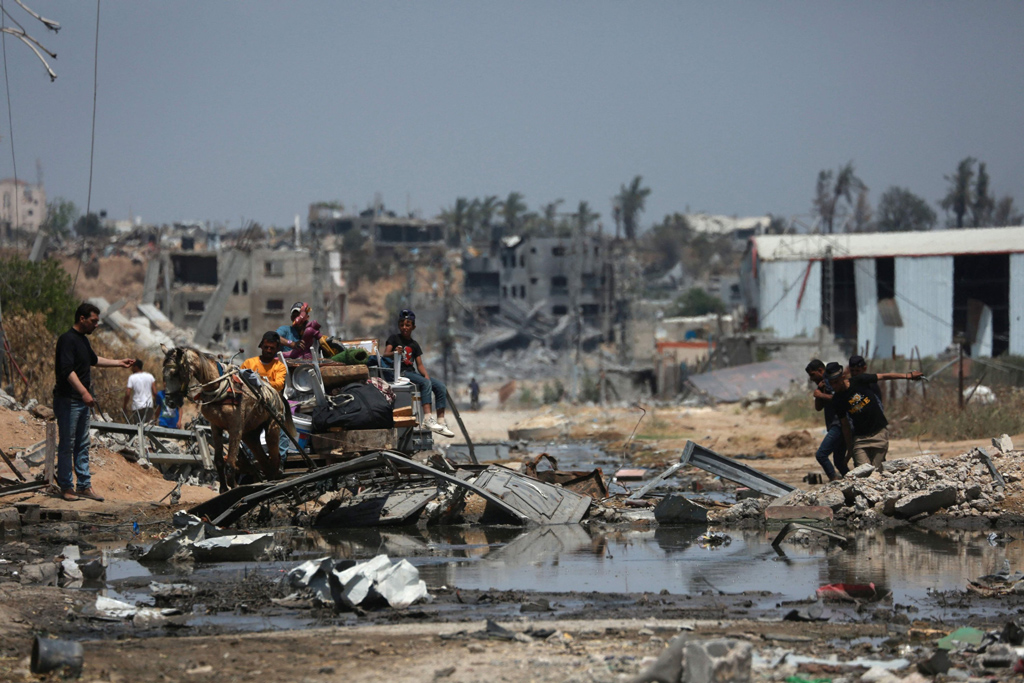
Why Arabs do not support Palestine?
| OpinionIt is surprising to see that the Arab governments and citizens did not react effectively …
-
Opinion
Why Arabs do not support Palestine?
By Muhittin AtamanIt is surprising to see that the Arab governments and citizens did not react effectively to the latest developments in the Gaza Strip. Although observers have been expecting a more effective reaction from Arab governments and citizens, they have largely remained indifferent to the ongoing genocide against the Palestinian people, living not only in the Gaza Strip but also in the West Bank. The streets of Arab states are unexpectedly very quiet compared with the streets of many non-Arab and non-Muslim countries.
-
Opinion
The ‘tragedy’ of US policy vis-a-vis Israel
By Kadir ÜstünThe Biden administration seems to have at least temporarily succeeded in preventing Iran's direct attack on Israel from escalating into an uncontrolled war. The White House conveyed the message to Israel through various channels that any attack on Iran should be 'proportional,' also signaling to the Netanyahu government that US support for Israel would be limited to defense. With the assistance of the United States, the United Kingdom, and Jordan, Iran's UAVs and missiles were intercepted before reaching Israeli airspace, making the job of the Iron Dome relatively easier. However, Iran's low-intensity and controlled attack with low-cost weapons demonstrated that in a more 'real' war, Israel's task would be far from easy. The attack, which brought the urgency of Israel's defense to the forefront, seems to pave the way for a vote on a long-delayed aid package for Israel, Ukraine, and Taiwan in the House of Representatives. The fact that American foreign aid could reach the approval stage thanks to the attack on Israel indicates how much the issues that bring Republicans and Democrats together have decreased.
-
News
Insight Turkey Publishes Its Latest Issue “Asia Anew Revisited”
By SETAWe are pleased to announce that the inaugural edition of Insight Turkey for 2024 has been published. This issue includes one commentary and six research articles delving into the diversity of Turkish foreign policy in East Asia. It offers a comprehensive analysis of contemporary Türkiye’s relations with Asian countries. Additionally, this issue also presents six pieces on other topics regarding the Palestinian crisis in Gaza, the relation between economic and military power, national brand of Japan, the citizenship law in Kosovo, and the impact of the Ukrainian war on global politics.
Bu Konuda Daha Fazla
-
Israel’s 2 grave mistakes that put its Western allies...
By Muhittin AtamanThe latest developments in Gaza have forced many states to reconsider their policies toward Israel’s genocidal attacks, the suffering of the people of Gaza and the resistance of the Gazan people, which will continue to shape not only regional but also global politics.
-
Unpacking the AK Party’s 2024 electoral setback
By Murat YeşiltaşOn March 31, the local elections profoundly transformed the landscape of Turkish politics. For the first time since its ascendancy in 2002, the Justice and Development (AK Party) concluded the elections as the runner-up, marking a significant shift in the nation’s political dynamics.
-
Recent developments in Palestine amid Israeli aggression
By Muhittin AtamanAlthough Israel’s genocidal attacks and the suffering of the people of Gaza continue to occupy the main agenda of world politics, there have been important developments in Palestine recently. There are many efforts to divert the attention of people and governments from Israel's brutality. However, none of these attempts have succeeded in taking Gaza off the agenda. Even the brutal terrorist attack in Moscow did not distract the international community.
-
Did Biden abandon Israel at the UN General Assembly?
By Kadir ÜstünThe 'immediate ceasefire resolution' issued by the United Nations General Assembly (UNGA) due to the United States' abstention indicates that the Biden administration's political pressure on Israeli Prime Minister Netanyahu persists. Despite the White House emphasizing that the decision is not binding and that there are no changes in policy, Netanyahu canceled the visit of the delegation he planned to send to Washington immediately after the UNGA decision. The fact that the Biden administration, which has been diplomatically protecting Israel with its veto power since October 7th, chose to abstain this time suggests that the crisis in bilateral relations has reached its peak. While Netanyahu may lean towards Trump, who has advocated for ending the conflict, Trump's remarks have increased American pressure.
-
Will Israel implement the UNSC Gaza cease-fire resolution?
By Muhittin AtamanThe United Nations Security Council (UNSC) has passed a resolution demanding an immediate cease-fire in Gaza for the month of Ramadan. The 14 members council members voted in favor of the resolution, which was proposed by the 10 elected members of the council. Only the United States abstained from the vote. After the vote, there was an unusual round of applause in the council chamber, showing how much the international community wants the bloodshed to end.
